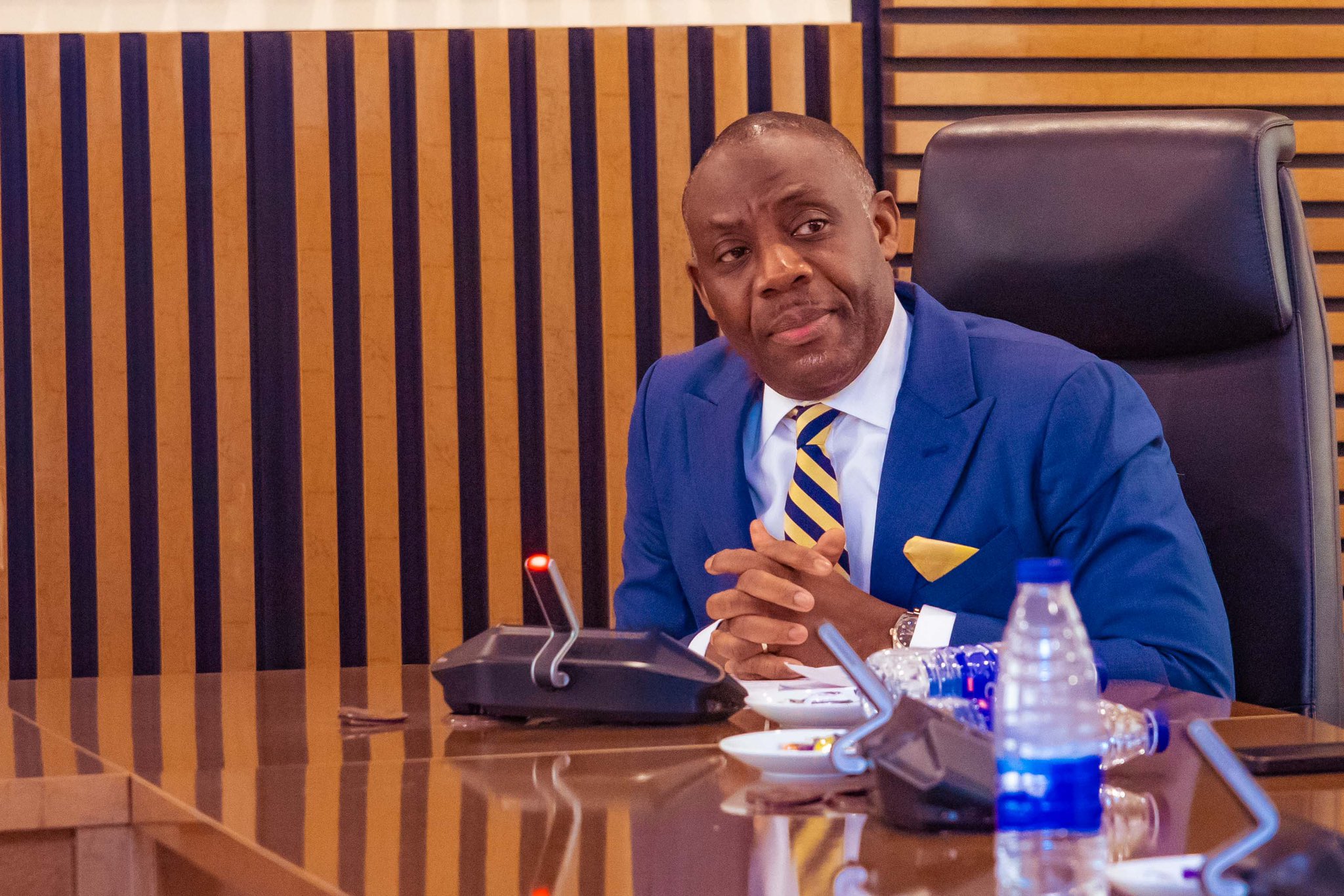Education
Sign BSC/HND Dichotomy Bill before May 29, ASUP appeals to Buhari

Sign BSC/HND Dichotomy Bill before May 29, ASUP appeals to Buhari
The Academic Staff Union of Polytechnics, ASUP, has called on President Muhammadu Buhari to sign into law the bill to abolish BSC/HND dichotomy before he leaves office on May 29.
National President of ASUP, Comrade Anderson Ezeibe, who made the call in an interview with Vanguard in Abuja yesterday, said the dichotomy had made young Nigerians not to be interested in polytechnic education in the country.
He said it would be a memorable legacy if President Buhari assents to the dichotomy bill before he exited office.
He said: “We are urging President Buhari to go ahead and sign that bill into law. That is another way of saving this sector. As we speak, the Roman figures are dropping significantly so because the sector is losing its attraction to young people
“So we expect him to sign this bill. Other stakeholders in the sector have also been calling for him to do so. It will be an enduring legacy if Mr. President succeeds in doing this before he leaves office.”
He contended that stakeholders in the polytechnic education sector had urged the Ninth National Assembly to pass the “Bill for an Act to Abolish and Prohibit Dichotomy and Discrimination between First Degree and Higher National Diploma.”
READ ALSO:
-
Respite as resident doctors suspend nationwide strike
-
Japa: UK set to bar family of Nigerian students, others
-
Foreign nations reject 70% of exported Nigerian goods – NAFDAC
The National Assembly in 2021 passed the “Bill for an Act to Abolish and Prohibit Dichotomy and Discrimination between First Degree and Higher National Diploma in the Same Profession/Field for the Purpose of Employment; and for Related Matters,” and has presented it to President Buhari for assent before it can become a law.
The bill is seeking to legislate the discrimination of polytechnic graduates from their university counterparts in employment and promotion in the workplace.
The bill also seeks to end the discrimination that stakeholders in the polytechnics have, which for long they sought an end to.
The piece of legislation, sponsored by Senator Ayo Akinyelure, passed the third reading on the floor of the Senate at plenary.
The Chairman, Senate Committee on Tertiary Institutions and Tertiary Education Trust Fund, Ahmad Kaita, presented his report and all the amended six clauses were approved by the Senate.
Chairman of the Joint Committee, Ibrahim Shekarau (APC, Kano Central), said, “The enactment of the bill to abolish and prohibit discrimination between First Degrees and Higher National Diploma for the purpose of employment in Nigeria will no doubt freeholders of HND from stagnation and ensure balanced treatment with their counterparts from other higher tertiary institutions in Nigeria.
Unlike graduates of universities, HND holders cannot rise to Grade Level GL 17 in the civil service.
Also, at the entry-level in the civil service, Polytechnic graduates are placed on GL 07 while university graduates are placed on
Education
12-year-old Nigerian girl Eniola Shokunbi invents air filter to reduce spread of diseases in US schools

12-year-old Nigerian girl Eniola Shokunbi invents air filter to reduce spread of diseases in US schools
A 12-year-old Nigerian from Connecticut, USA, Eniola Shokunbi, has designed an air filter to reduce spread of air borne diseases in the US schools.
The design aims at creating low-cost air filters for classrooms.
The Connecticut State Bond Commission has approved $11.5 million in funding for the design.
Eniola in her fifth grade at Commodore MacDonough STEM Academy of Middletown, they were tasked with creating a solution to enhance safety in schools during potential future pandemics.
Therefore, to combat airborne viruses like COVID-19, she developed a simple but effective air filter system.
Design
Shokunbi’s air filter design showcases both innovation and cost-effectiveness. The unit is constructed using a simple combination of components: a box fan, four furnace filters, duct tape, and cardboard.
READ ALSO:
- Gunmen kill two soldiers in Abia checkpoint attack
- 94 arrested as task force raids Lagos rail corridor squatters
- Two dead, buildings destroyed in American factory explosion
This ingenious assembly results in a remarkably low production cost of approximately $60 per unit. This makes it a highly affordable alternative to commercial air purifiers.
Eniola Shokunbi said, “The air goes through all the sides, and it comes out of the top. So it filters in and out.”
With support from scientists at the University of Connecticut, UConn, Eniola’s design underwent rigorous testing.
The Environmental Protection Agency, EPA, confirmed that the device effectively eliminates over 99% of airborne viruses, showcasing its potential to significantly improve classroom safety.
The recent approval by the State Bond Commission allocates $11.5 million for the implementation of these air filters across Connecticut schools.
This funding is part of UConn’s SAFE-CT: Supplemental Air Filtration for Education Program, which aims to ensure that every public school classroom has access to these vital air purification systems.
Eniola’s vision extends beyond Connecticut; she aspires to see her air filters implemented in classrooms nationwide.
“A lot of people don’t realize that the only thing standing between them and getting sick is science,” Eniola Shokunbi said.
Also, she emphasized the importance of investing in scientific solutions for children’s health.
12-year-old Nigerian girl Eniola Shokunbi invents air filter to reduce spread of diseases in US schools
Education
Minister wants FG to revive Jonathan’s Almajiri system of education

Minister wants FG to revive Jonathan’s Almajiri system of education
Alausa made the call when the Senate Committee on Tertiary Institutions and TETFund led by its Chairman, Sen. Muntari Dandutse, visited the ministry for an oversight function.
Alausa, who was newly posted to the ministry, decried the high rate of out-of-school children, saying that with enough fund allocation, the menace would be tackled.
“We have up to 20 million out-of-school children.
“I met with the Executive Secretary of the National Commission for Almajiri and Out-of-School, who said that the 20 million was even under-quoted.
“It is about 40 million to 50 million. This is a danger that can consume everybody. We have to make these schools work.
“Former President Goodluck Jonathan built about 137 Almajiri schools during his tenure, but today, it is sad that only a few of these schools are operational,” he said.
Alausa said that there was a lot of infrastructural decay in the schools, adding that with the Almajiri Commission established by an act of Parliament, the ministry would empower the children.
READ ALSO:
He, however, called for more funding to achieve the desired goal of ensuring that out-of-school children were taken off the streets.
The minister further said that the ministry would find a way of keeping children in school by making the Home Grown Feeding Programme viable and sustainable.
“We will design the nutrition, we will ensure that the children get good nutrition which will translate into better brain development, and enable us to develop human capital,” he said.
He also said that the nation was churning out graduates that were not employable.
“We have to refocus, and the way we are refocusing is that going forward, we will focus on Science Technology, Engineering, Mathematics and Medical Sciences (STEMM).
“Today, we have hospitals built, infrastructure is there and funded, but we do not have medical personnel to run them.
“We will also focus on technical, and vocational education. We will encourage 80 per cent practical training and 20 per cent theory,” she said.
The Chairman of the Committee, Sen. Muntari Dandutse, said that the Senate would collaborate with the ministry to make education a priority in the country.
Dandutse also called on the minister to give attention to the issues of security and power supply to higher institutions.
“Most of the allocation to the universities is going to the payment of electricity bills. We need to work together to ensure that they have an uninterrupted power supply,” he said.
Minister wants FG to revive Jonathan’s Almajiri system of education
NAN
Education
FG reverses 18-year admission entry for varsities, sets new priorities

FG reverses 18-year admission entry for varsities, sets new priorities
In a significant policy shift, Nigeria’s newly appointed Minister of Education, Dr. Tunji Alausa, has announced the abolition of the 18-year admission benchmark for tertiary institutions across the country.
During his inaugural press conference in Abuja on Wednesday, he also indicated plans to review the nation’s education policy.
Despite these changes, Alausa reaffirmed that there will be no reversal of the Federal Government’s recent decision to invalidate over 22,700 degree certificates obtained by Nigerians from certain “fake” universities in neighboring Togo and the Benin Republic.
This move aims to uphold the integrity of the nation’s education system.
Emphasizing the need for practical education, Alausa noted that the current system cannot continue producing graduates without corresponding job opportunities, which has contributed to Nigeria’s rising unemployment rates.
To address this, he announced plans for the federal government to partner with private sector operators to provide training and development opportunities for students, unlocking their potential for future employment.
Additionally, Alausa expressed a commitment to empowering universities of agriculture to adopt commercial farming practices as a strategic approach to combat food insecurity in the country.
FG reverses 18-year admission entry for varsities, sets new priorities
-

 International3 days ago
International3 days agoBelgium University offers scholarship up to €12,000 for Master’s students
-

 Sports9 hours ago
Sports9 hours agoBREAKING: Super Eagles qualify for AFCON 2025
-

 Railway2 days ago
Railway2 days agoNigerian railway adds extra train to Friday, Saturday trips on Lagos-Ibadan route
-

 International2 days ago
International2 days agoUK announces 45,000 seasonal worker visas for 2025
-

 Aviation11 hours ago
Aviation11 hours agoDisaster averted as bird strike hits Abuja-Lagos Air Peace flight
-

 Education1 day ago
Education1 day ago12-year-old Nigerian girl Eniola Shokunbi invents air filter to reduce spread of diseases in US schools
-

 International3 days ago
International3 days agoSaudi crown prince says Israel committing ‘genocide’ in Gaza
-

 Business2 days ago
Business2 days agoTop 5 crypto apps that work with Nigerian Bank accounts












